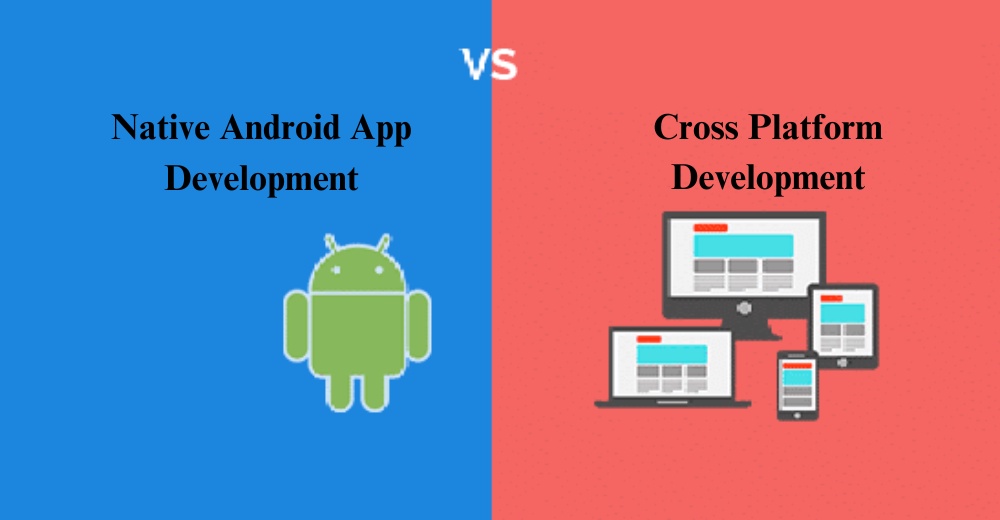One of the basic choices companies and developers must make in the area of Android app development services is whether to choose cross-platform development or native Android app development. Each strategy offers a unique set of benefits and disadvantages. In this article, we'll examine both sides of the argument to help you decide which is ideal for your upcoming Android app project.
Native Android App Development: Unleash the Full Potential
Pros:
1. Performance Optimization:
The best performance is achieved by using the full capability of the Android platform through native Android app development. The app is optimized for a particular platform, resulting in quicker load times and more streamlined user interactions.
2. Access to Native Features:
Native apps enable access to functions like the camera, GPS, and sensors by integrating seamlessly with the device's hardware and operating system. This makes it possible for developers to produce feature-rich, highly functional apps.
3. Platform-Specific
User Experience: By following Android's Material Design standards, native apps can be customized to offer a dependable and simple user experience. User engagement and retention can increase as a result of this familiarity.
4. Better Offline Functionality:
Because native apps have the ability to save data locally, users can use some functionalities even when there is no internet connection. For applications that need offline access, this is crucial.
Cons:
1. Development Time and Cost:
Particularly if you intend to create the same app for both Android and iOS, native Android app development can take more time and money. There must be a separate development effort for each platform.
2. Multiple Codebases:
It might be difficult to maintain distinct codebases for Android and iOS because upgrades and bug fixes must be implemented differently for each platform.
Cross-Platform Development: Efficiency and Reach
Pros:
1. Code Reusability:
React Native, Flutter, and Xamarin are a few examples of cross-platform development frameworks that enable developers to create code once and publish it across other platforms, including Android. The cost and duration of development are greatly decreased.
2. Faster Development:
Cross-platform tools provide pre-built libraries and components, which accelerate development and eliminate the need for custom code.
3. Wide Audience Reach:
Without the need for separate development efforts, cross-platform apps can target both Android and iOS users, hence boosting the app's potential user base.
4. Consistent UI/UX:
Tools for developing a uniform user interface and user experience across many platforms are frequently provided by cross-platform frameworks, helping to retain brand identification.
Cons:
1. Performance Limitations:
Due to their reliance on an additional layer for platform compatibility, cross-platform apps may not perform as well as native apps.
2. Limited Access to Native Features:
While many native functions are accessible through cross-platform frameworks, implementing other sophisticated or platform-specific functionalities may be difficult.
3. Dependence on Third-Party Libraries:
For specialized capabilities, cross-platform programming frequently necessitates integrating third-party libraries, which can cause compatibility problems or demand more maintenance work.
Making the Choice: What's Best for Your Project?
The exact requirements and limits of your project will eventually determine whether you should design a native Android app or a cross-platform app.
When to Choose Native Android Development:
1. High Performance Matters:
Native programming is the way to go if your app relies on demanding visuals or needs real-time responsiveness.
2. Access to Native Features:
when your program must intimately connect with device hardware or significantly use platform-specific capabilities.
3. Brand Consistency:
If a consistent Android-specific user experience is essential to the success of your app.
When to Opt for Cross-Platform Development:
1. Cost and Time Efficiency:
Cross-platform development may be a more cost-effective solution for tasks with constrained funds and short schedules.
2. Broader Audience Reach:
when you want to simultaneously target consumers of Android and iOS without having to double your development efforts.
3. Prototyping and MVPs:
Cross-platform tools can speed up the time it takes to test concepts and ideas.
Consider a Hybrid Approach:
A hybrid strategy might work in some situations. This entails employing cross-platform development for less important elements while using native code to create your app's essential functionality. You may balance effectiveness and efficiency in this way.
Conclusion
Cross-platform and native Android app development each have advantages and disadvantages. Your decision should be in keeping with the objectives, spending limit, schedule, and performance standards of your project. Think about partnering with a skilled Android app agency or Android apps development firm that can evaluate your unique demands and direct you toward the most effective course of action. The right path can make all the difference in producing a successful and user-friendly Android app that stands out in the market in the dynamic world of mobile app development.


No comments yet